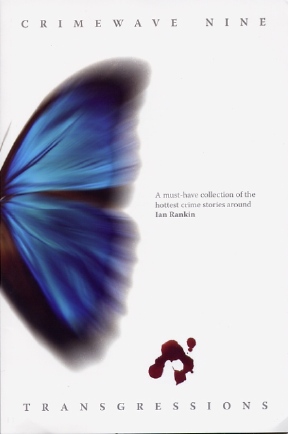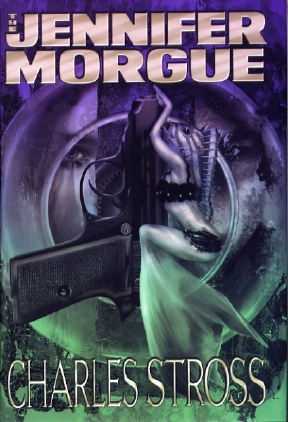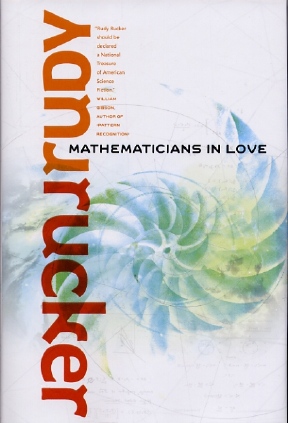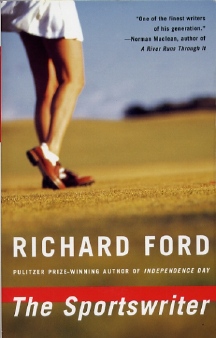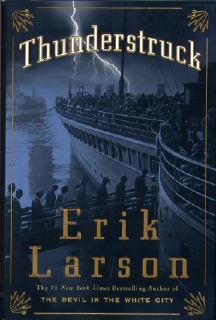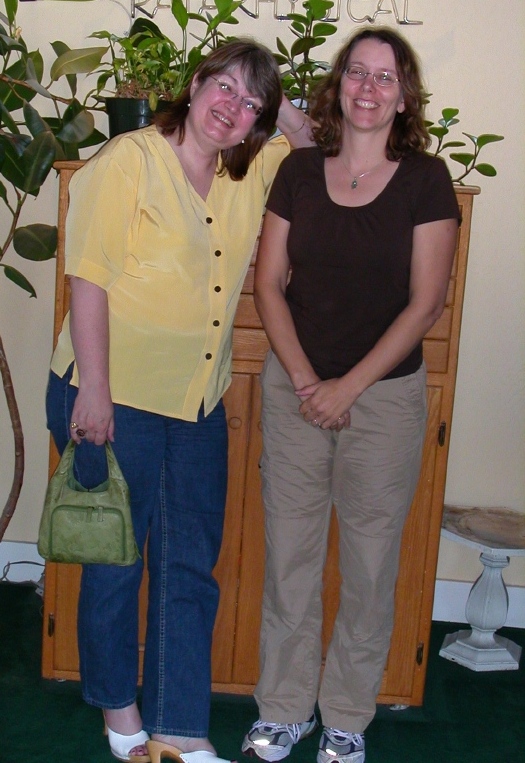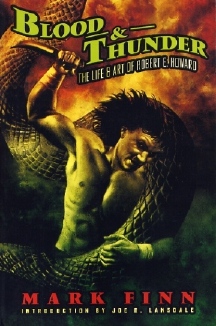|
|
|
This Just In...News from the Agony Column
|
12-15-06: Ride the Crimewave |
|||
Transgressions:
Crimewave Nine
'Crimewave' doesn't waste time or space. Page 1 is an index. You get exactly two pages of "Who Done It" at the end of the book, and everything between is pure fiction by a great crop of writers from the US and the UK. Thing start off dire with 'Blue Morpho' by Shelly Costa. Mo McCallum, a single mother, has just watched her eighteen-month old child's body pulled from the lake. Costa captures the blank, haunted acceptance and the coiled fury of a woman who ensures the death of her child. It's eerily beautiful. The book finishes with 'The Frozen Lake' by John Shirley, a lovely little valentine for all those husbands who have rooms where their wives are not to tread. In between, you'll find ten other stories, all by writers with great credits. I was only familiar with Scott Nicholson, author of 'The Red Church', but the great joy here is that all the writers offer work that makes you want to read more. Particularly effective were Robert Weston's clever 'Thinking of Alice'and Susan Overcash Walker's 'Dogwood'. But as with all great collections, the whole here is much greater than the sum of the parts. Cox sequences his stories well, and offers the kind of variety that crime fiction is capable of but we rarely see. There are soupcons of the supernatural, and the gist of much of the material is flat-out horrific, but the thread that connects everything is crime fiction. One of the things I've always liked about horror fiction was that to my mind it offered writers and readers the greatest variety of story and a manner in which writers could externalize conflicts and impulses into something visible to the reader. Until I encountered 'Crimewave', it never occurred to me that crime fiction has the same potential. But then reading this collection, I was reminded of no less than Alfred Hitchcock, who pulled off a similar combination of horror and mystery and pertinent content. To my mind, Cox has a finer sensibility combined with an outstanding sense of design. You can and should subscribe to 'Crimewave'. But you absolutely cannot hope to find a better collection of razor-edged roses anywhere on the planet. |
|
12-14-06: Stross & Rucker Add Up to Excellence |
||||||
Unsafety
in Numbers
Unraveling does not make a good story, however. But both Rudy Rucker and Charles Stross do, and their latest books follow from the proposition that math underlies everything and should you be good enough at it, well, you can – it depends. Here’s the perfect demonstration of how two writers who really have a sort of similar bent can develop a source idea in radically different manners. I hope you've already got your order in for 'The Jennifer Morgue' by Charles Stross (Golden Gryphon ; November, 2006 ; $25.95) because I am pretty sure that the first printing is going to sell out quickly. (You can buy direct from the publisher and help to futher ensure more goodness in the future.) There's a great reason: this is Charles Stross delivering totally enjoyable reading on all levels. This sequel to 'The Atrocity Archives' pits Bob Howard against Lovecraftian entities and the British bureaucracy, with the latter being the most insidious and frightening. And we all know the set-up: numbers underlie everything and with the introduction of computers, magic became possible. Alas, there are lots of critters living beyond the confines of the world as perceived by tiny human minds that were as empowered by this as were the various spy agencies, and Howard is the sysadmin of doom who must install software patches to prevent them from coming through. This time around, he's got to get a deadly device from an evil billionaire who wants to talk with things that just won’t take "NO!" for an answer. The real delight in this book is to see Stross undertake a dead-on cybergeek-Lovecraftian version of a James Bond novel. Stross has a corporate-aged sense of humor, and his jokes are laugh-out-loud funny while his scares are shiver-your-spine scary. And don't think that Stross has left out his vicious satirical jabs at the political shenanigans that governments keep getting up to. The extremely cool cover art for this book is by Steve Montiglio, and it includes not only the novel, but a long story in which Bob Howard takes on the world of virtual gaming, ('Pimpf') and the icing on the cake: 'The Golden Age of Spying', a delightful essay on the literary history of James Bond. The movie may in general suck, with exceptions, but Stross delivers big-time. Monsters. Sarcasm. Computer in-jokes. Geek humor. Lovecraft – H.P. Lovecraft. This is to die for. And, given "Gravedust", we'll be able to hear just how happy you are in the afterlife. Better take a calculator.
Rucker is wonderful and versatile writer, reminiscent in tone and range to Stanislaw Lem. This novel will provide readers with all the pleasures that one could ask for from fiction; monsters, love, and plans to RULE THE WORLD. Or at least revise it. Where Stross takes his math cue and runs with it using a James Bond template, Rucker takes the same cue and writes a wicked, witty romantic comedy, with monsters. His characters live and breathe with a smartass appeal and geek comedy that should bring in new readers. What luck they will have. Rucker has a huge back catalogue that includes fiction, non-fiction and really, really weird fiction, all of it excellent. With its demure cover and very accessible premise, 'Mathematicians in Love' could prove to be Rucker's best-selling book yet. But who really cares about sales? The point is, this book is both entertaining and highly intelligent. You really can't go wrong with the latest novels from Rucker and Stross. What’s more they'll make a nice reading compliment to one another, with watery themes and psychedelically mathematical dreams. And yes, they both are fine exhibits of how science fiction is the literature of ideas, but also, that science fiction is simply literature. Worth reading, worth paying attention to. Even if you think you don’t like science fiction, you might want to give Stross and Rucker a read. If anyone can bring out the best in math and monsters, it's these one plus one. |
|
12-13-06: Re-Reading Richard Ford's 'The Sportswriter', A New Book Review |
|||
The
Same River
It was a fascinating experience and one that I do wish I could repeat – were
I not to get so many brand new books worth my valuable time in the mail
nearly every day. (Some came today so check
out the latest Rolling Shelves.)
When I first met Frank Bascombe, he was little older than I, and thankfully
not a lot wiser. But like me, he was a tried and true denizen of the
suburbs, which loomed as large as Frank himself in Ford's subsequent
novels. I generally discuss how I assign genre in these brief introductions,
but I hope it is clear that 'The Sportswriter' is only assigned to the
General Fiction category. This is not the normal review of a book I've
never read, but instead a look at the process and effect of re-reading
a book that loomed large in my memory. Nearly as large as the small,
Spanish bungalow by the beach that I lived in when I read it. Memories
and reading, memories of reading, memories of what you read...they merge
and dissolve. They can attain similar levels of import. Books are rivers
that you can step into twice. You will not be the same, but the book
will. If you re-read the past, then you have a better chance at re-writing
the present. |
|
12-12-06: A Review of Erik Larson's Thunderstruck |
|||
The
Well-Built World
Larson's book is without doubt one of the best, most recommendable books of this year. It reads like lightning. It is a page-turner par-excellence, but it’s all true. Moreover, it’s not simply a lurid re-creation of a murder or a technological advance, it is a vision of a world that is now so different from our so as to seem fantastical. And fantasy elements, though again all true, play a big part here. The scenes where Larson describes the huge, teetering Marconi installations on the wind-swept British and American shores are priceless works of steampunk imagination. It will come as no surprise that this book, which I will admit I keep calling a novel, is categorized as non-fiction. It is non-fiction. But I've also classified it as Science Fiction, because we should not let the fact that it is true get in the way of our enjoyment of this book as a work of science fiction. 120 years ago, it would have been a work of science fiction, and probably sold quite well. I also think that any reader who likes mysteries will enjoy Larson's investigation of a murder; it is a true-crime work, and thus slots under the Mystery genre nicely as well. Such is Larson's talent that even though you have pretty good idea as to what will happen the journey there is nonetheless enjoyable in the manner of a fine mystery novel. And finally, I think that readers who simply enjoy great fiction will find this story just as compelling as any fiction they might read and utterly accessible; and thus I get to pigeonhole it as General Fiction. The bottom line is that if you need to buy someone a book for a present this holiday season, 'Thunderstruck' is a book you can but without hesitation. If you listen to the interview I did with Erik Larson, you can hear why. He's clear and unpretentious, a just-the-facts-ma'am sort of guy who has wrapped his brain around the facts so completely that he makes the complicated concepts he evokes seem absurdly simple. Erik Larson builds a better world, and our world is the better for his creation. |
|
12-11-06: A 2006 Interview With Melanie Rawn and Kate Elliott, Part 2; Contest Winners Books in the Mail |
||
Deep
Genre
It should come as no surprise that when you interview two authors at once, you get a rather longish interview. Still, I have to admit that I was shocked when I looked up and noted that the CD had long ago stopped recording while I was speaking with Melanie Rawn and Kate Elliott. It seemed like no time had passed at all. Still, I kept pretty much everything and everything intact. So, here is part two of the interview, and I'll let the ladies do most of the speaking. We get into a bit of Paranormal Romance here, and Kate Elliott talks about "Deep Genre", that is the kind of cheesy adventure fiction we all love, and the kind of cheesy adventure fiction that often blazes literary trails and is as well quite well-written. But Deep Genre fiction does not often tell tales of suburban angst –though it can! Actually, it often provides blissful relief from suburban angst, and that is precisely what I'm going to do as well. You can enjoy the MP3, the RealAudio, or subscribe to the podcast and "collect 'em all". Plus, I'm still toying with the idea of podcasting the Talk of the Bay edit that I did for NPR affiliate KUSP, please send them money with my name written on the back. |
||
Incoming
Somewhere in the vicinity of last week, I ran a bit offering up a copy of 'Blood and Thunder' by Mark Finn. I'd like to officially thank Chris Roberson of MonkeyBrain Books for sending me two copies to give away. Let me gently suggest that other readers should run, not walk and buy as many MonkeyBrain books as you can find on the shelves. MonkeyBrains are good. You can serve them in the skull for a delicious appetizer, or make a meal of them. Thanks to everyone and look for more contests in the coming week and year as I complete my fifth, yes my FIFTH year of The Agony Column Website. Thanks to one and all who help make this possible, more and more as I have to the time to write it.... |
